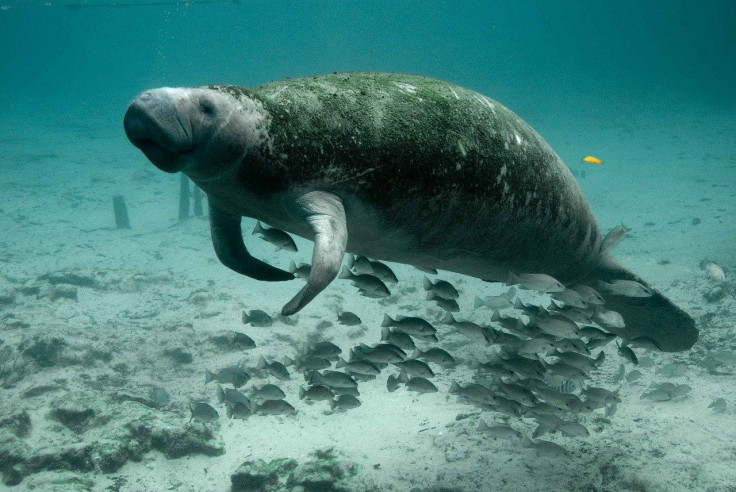Manatee Appreciation Day 2021: 17 Facts About The Threatened Sea Cows
KEY POINTS
- The last Wednesday of March marks Manatee Appreciation Day
- Manatees are gentle creatures, and their populations have significantly declined
- Below are some interesting and important facts about manatees
Manatee Appreciation Day is being commemorated on March 31 this year to show our appreciation for the gentle sea cows and to raise awareness about their plight.
Manatee Appreciation Day was created by conservation group Save the Manatee Club, according to National Today and is observed every last Wednesday of March.
The simple goal of the event is to inform people about the creatures, especially the troubles they face despite being creatures with no natural enemy or predator.
Manatee Basics
Manatees are slow-moving mammalian herbivores that typically spend their time eating, traveling and sleeping in slow rivers, saltwater bays, estuaries or coastal areas. The creatures are quite massive, growing up to 10 to 13 feet in length and weighing up to 1,200 pounds, but they are considered gentle giants as they are neither aggressive nor territorial.
Unfortunately, manatee numbers have drastically decreased in recent years, mainly due to habitat loss from factors such as human development and water pollution from fertilizers, sewage or manure. They're also poached for meat and often collide with boats or ships in the shallow waters where they feed.
Overall, much of their vulnerability comes from their contact with humans.
To mark the occasion, let's have a look at some important facts about manatees. (Courtesy --National Today, National Day Calendar, Smithsonian Mag, the U.S. Department of the Interior (DOI) and Sea World.)
- Manatees are actually more closely related to elephants than other marine creatures. They are also related to the dugong, and both the manatees and dugong belong to the order Sirenia.
- There used to be five members of the Sirenia order apart from the three manatees and the dugong. The largest among them, the Steller's sea cow, was driven to extinction by humans within 27 years after they were first described.
- Manatees are naturally gray in color, but they tend to look green or brown because of the algae that grow on their bodies.
- Manatees can't turn their heads like humans because they don't have the neck vertebra we do. If they want to turn, they have to move their entire bodies.
- There are three distinct manatee species worldwide: West African, West Indian and Amazonian. Among them, the Amazonian is the smallest.
- There are two subspecies of the West Indian manatee, one of them being the Florida manatee.
- Manatees can die if it's too cold, but human activity remains to be a "much greater threat" to them.
- Manatees have to eat a tenth of their body weight each day. Since they weigh up to 1,200 pounds, that means they have to eat a whole lot of greenery.
- The Florida manatee was first listed under the "Endangered Species Preservation Act of 1966" in 1967.
- In 2017, the U.S. Fish and Wildlife Service downgraded the West African manatees' status from "endangered" to "threatened."
- While West Indian and African manatees live in both fresh and saltwater, Amazonian manatees live exclusively in freshwater.
- The exact gestation period of most manatees is largely unknown, but the Florida manatees' gestation period is believed to be about 12 months.
- Manatees have a maximum lifespan of 50 to 60 years.
- Manatees always have a new set of teeth growing behind their current ones.
- Even though they don't have an obvious ear structure, manatees actually have good hearing.
- It’s believed that manatees inspired mermaid legends. When Christopher Columbus saw "mermaids" on his journey to the Americas, he had written that they were "not so beautiful as they are said to be."
- The Florida Manatee Sanctuary Act makes it illegal to disturb, play with, harass or even hug manatees.
On Manatee Appreciation Day, why not learn more about the creatures and spread the word about them. One simple way to share information is by posting about them and using the #SaveTheManatee or #ManateeAppreciationDay, National Today suggested.
People can also donate to manatee conservation programs to help improve their condition.

© Copyright IBTimes 2025. All rights reserved.






















